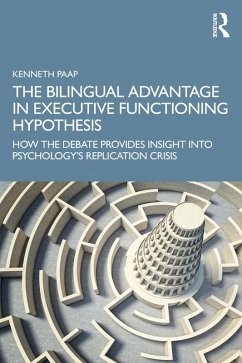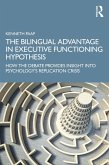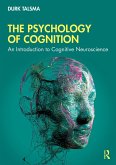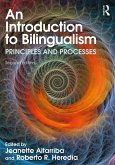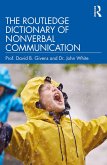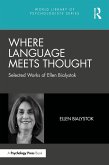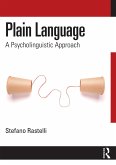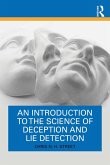The book explores the evolving core assumptions underlying the bilingual advantage hypothesis, framing the debate within the broader context of a replication crisis. It provides a critical review of seminal studies and meta-analyses and argues that the empirical evidence does not support a bilingual advantage on EF that is distinguishable from zero. Part I lays the foundation for the debate, providing the background needed to understand the state-of-the-art research on EF and bilingual language control. The next part then provides a detailed review of the empirical evidence triggering each iteration of the hypothesis. This includes new data that compares tests of the bilingual advantage hypothesis based on self-reports of cognitive control to performance-based measures of EF. A third theoretical part considers several explanations for why managing two languages may not enhance aspects of domain-general cognition.
This is essential reading for students and scholars in bilingualism, psychology, linguistics, languages, speech and hearing science, and related fields. It also serves as an excellent primary source for graduate courses on the bilingual advantage debate, and is useful for advanced undergraduate courses in psycholinguistics, cognition or bilingualism.
Dieser Download kann aus rechtlichen Gründen nur mit Rechnungsadresse in A, B, BG, CY, CZ, D, DK, EW, E, FIN, F, GR, HR, H, IRL, I, LT, L, LR, M, NL, PL, P, R, S, SLO, SK ausgeliefert werden.
This book is an in-depth account of the heated controversy over claims of bilingual advantages in executive functions. The author, a key figure in this discussion, meticulously dissects the arguments and evidence on either side of the debate and brings it together in what is a compelling plea for theory-testing, methodologically rigorous research. A must-read for bilingual-advantage researchers and students, and a strongly recommended case study for anyone interested in the life cycle of academic discourse in what has been a hot topic of psychology for many decades. - Dr Claudia von Bastian, Department of Psychology, University of Sheffield, United Kingdom
This timely and comprehensive assessment of the bilingual advantage hypothesis is a must-read for all social science researchers and students. Beyond the specifics of bilingualism and executive functioning, the book delivers a sobering case study of the replication crisis that besets social science in the 21st century. - J Bruce Morton, University of Western Ontario, Canada

